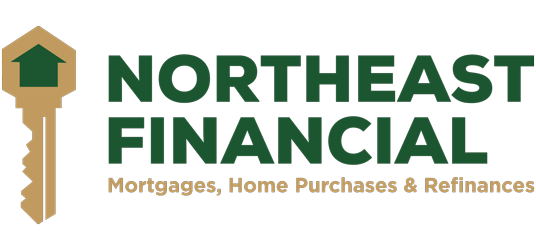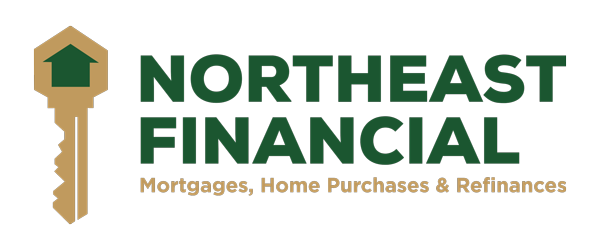A Non QM Mortgage
A non-qualified mortgage (non-QM) is a home loan designed to help homebuyers who can’t meet the strict criteria of a qualifying mortgage. For example, if you are self-employed or don’t have all the necessary documentation to qualify for a traditional mortgage, you might need to look at non-qualified mortgages.
Loan Options
With Non QM Mortgages, you can do terms of 15, 20, 30 years, Interest Only Loans, and even 40 year amortization mortgages.
Who should consider a NonQM Mortgage
- Retiree
- Self-employed
- Real estate investor
- Business owner
- Foreign national
- ITIN Borrowers
- Buyer who lives off investments, or has high assets and low income
- Buyer with a high debt-to-income ratio
- Buyer with less-than-perfect credit
- Buyer looking to purchase a Non Warrantable Condo
- Someone looking to hold the subject property in the name of an LLC and not an individual
Programs
Bank Statement Loan – Mortgage Solution for Self Employed Borrowers
FAQs
How Does A Bank Statement Mortgage Program Work?
A bank statement mortgage allows eligible self-employed borrowers to use bank statements to help verify income instead of tax returns. A lender will use these statements to analyze income to prove the ability to repay a loan.
What Is The Difference Between A Bank Statement Loan And A Traditional Mortgage Loan?
Traditional loans will generally require tax returns, W-2s and paycheck stubs in order to verify a borrower’s income. A bank statement mortgage loan offers self-employed borrowers a different option to verify their income without using tax returns.
Are Self-Employed Borrowers Required To Use Bank Statement Loan Products?
A bank statement loan is often a great option for qualified self-employed borrowers. However, self-employed borrowers should choose the best loan product to help meet their mortgage needs.
1099 Income Loan – Mortgage Solution for Self Employed Borrowers
FAQs
How Does A 1099 Mortgage Program Work?
A 1099 mortgage allows eligible self-employed borrowers to use their 1099 and bank statements to help verify income instead of tax returns. A lender will use these statements to analyze income to prove the ability to repay a loan.
What Is The Difference Between A 1099 Loan And A Traditional Mortgage Loan?
Traditional loans will generally require tax returns, W-2s and paycheck stubs in order to verify a borrower’s income. A 1099 mortgage loan offers self-employed borrowers a different option to verify their income without using tax returns.
Are Self-Employed Borrowers Required To Use 1099 Loan Products?
A 1099 loan is often a great option for qualified self-employed borrowers. However, self-employed borrowers should choose the best loan product to help meet their mortgage needs.
Investor Cash Flow – Mortgage Solution for Real Estate Investors (Cash Flow Loan)
FAQs
What Is An Investor Cash Flow Loan?
This loan product allows cash flow on a property to be used to qualify for a mortgage loan. No tax returns or employment information is required. This innovative program can help property investors build a portfolio of income-generating properties.
Can You Qualify For An Investor Cash Flow Loan If You Own Multiple Properties?
Yes, it is possible to qualify for an Investor Cash Flow loan if you own multiple properties. The limit on the number of homes financed may vary.
Is Employment Documentation Required For An Investor Cash Flow Loan?
No, employment information and tax forms are not required to qualify for an Investor Cash Flow loan product.
High LTV Jumbo – Loans with a little as 3.5% down for borrowers seeking loan sizes over conventional limits
FAQs
What Is High LTV Jumbo Loan?
This loan product allows for a borrower to put less than 20% down using a loan over conventional loan limits. Rates can be higher than a traditional jumbo with a full 20% down but, the borrower will also often benefit from there being No Mortgage Insurance when choosing this option.
Who can qualify for a High LTV Jumbo Loan?
Borrowers with above-average credit scores and strong income are often the best suited for these loans.
Asset Qualifier – Ideal for borrowers with high net worth and significant assets
FAQs
What Assets Can Be Used To Qualify For This Loan Program?
Borrowers can use bank accounts such as checking and savings, retirement, and investment accounts such as stocks or mutual funds.
Are Any Assets Required After Closing?
Yes. The buyer must have at least $500,000 in post-closing assets.
Does The Asset Qualifier Program Require Employment Or Retirement Status?
There is no requirement to be currently employed or retired. This loan is solely based on using assets to qualify and no income or employment verification is required.
ITIN Mortgage – A full documentation product that allows borrowers without a SSN to obtain a mortgage
FAQs
What Is An ITIN Mortgage Loan?
Individual Tax Identification Number (ITIN) loans are for people who are not eligible for Social Security numbers. ITIN loan requirements can vary by lender. Homebuyers who use ITIN cards for identification and tax purposes should call a lender to discuss requirements and eligibility.
Can A Homebuyer Without A Social Security Card Use An ITIN Card To Get A Mortgage?
Yes, an ITIN mortgage loan allows ITIN card holders to obtain a mortgage. ITIN is used in lieu of Social Security for identification purposes. The homebuyer would also need to meet all of the requirements to be eligible for an ITIN mortgage loan.
Is An ITIN Mortgage Loan A Full Doc Loan?
Yes. These loans require documentation and information to determine a homebuyers eligibility. Documentation and information needed will vary based on a homebuyers circumstances. A lender can advise on what is needed to qualify for this loan type.
Foreign National – Product designed for Foreign National clients to purchase investment properties in the US.
FAQs
What Is A Foreign National Mortgage Loan?
No Ratio – The loan that doesn’t require income, employment, or a DTI ratio to qualify.
These loans are best suited for those with good credit who may not show consistent income on paper, or have difficult to document income sources, despite having strong savings or access to gift funds.
No DTI calculation
Loan amounts up to $3M
640 FICO up to 80% LTV
Call us today for a free consultation or click here to begin the pre-approval process.

